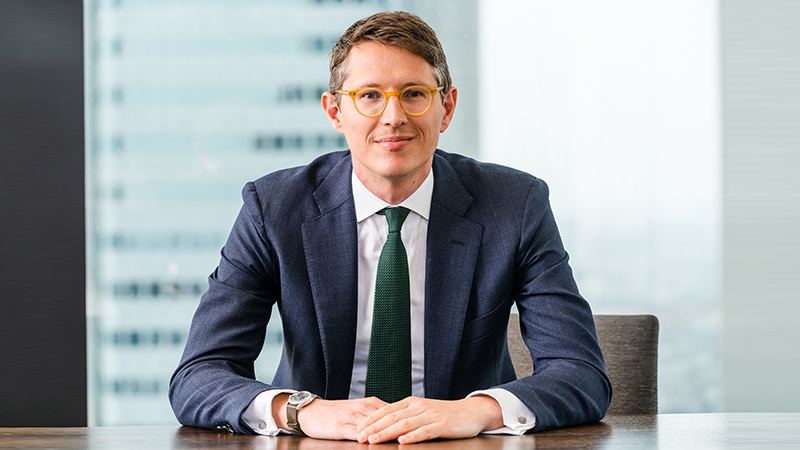Global equities are on the cusp of a ‘golden era’ for dividend growth over the next five years, according to JP Morgan Asset Management fund manager Sam Witherow.
A recent Janus Henderson Global Dividend monitor revealed that global payouts hit a new record high in Q2 of 2024, up 8.2% on an underlying basis to $606.1bn, with 92% of companies globally either raising or holding payouts at their current level.
Witherow, who co-manages the £740m JP Morgan Global Equity Income fund, says that dividend growth is accelerating “very meaningfully”.
See also: The 15% of US funds that beat the S&P 500 over the past decade
He says the reasons for the more positive outlook date back to the Covid pandemic, when global dividends fell 12% in 2020 alone.
“Companies were cutting dividends because they had no idea of when this pandemic was going to end. They were preparing for an L-shaped recovery, which didn’t happen. Instead, we shot out of the pandemic with huge amounts of fiscal and monetary stimulus.
“Global earnings power exploded, but dividends were left behind. They typically lag the earnings power of companies, which is starting to change, but the starting point for payouts is very favourable.”
In Q2, the MSCI World dividend growth outpaced earnings growth.
While over the last 20 years, dividends have grown at c.5.5% per year, JPMAM’s analysts are forecasting a 7.6% annualised growth over the next five years.
“That can entirely be explained by the fact that payout ratios today are five percentage points lower than they have been on average for the last 20 years,” Witherow said. “It’s the delayed hangover from the pandemic. We think it’s a golden era for dividend growth over the next five years. It won’t last forever, but it’s an attractive long-term cyclical opportunity.”
Compounders and Shin-Etsu
Witherow manages the JP Morgan Global Equity Income fund alongside Helge Skibeli and Michael Rossi. Over the last five years, the strategy has returned 68.4%, placing it in the top quartile of performers in the IA Global Equity Income sector, according to FE FundInfo data.
In terms of active weight, the strategy’s largest position is in Japanese specialist chemicals supplier Shin-Etsu. The company is an example of a ‘compounder’ stock which the fund aims to target, which typically yields 2-3%, a range Witherow says is the “sweet spot” for outperformance.
Shin-Etsu has several divisions that conduct business in a range of sectors, including a US construction-based speciality chemicals business and a silicones business which develops components essential for the production of hearing aids and heart valves.
“The most important business for Shin-Etsu is silicon wafers,” Witherow says. “It’s the world’s largest supplier, by some margin, of 300-millimetre silicon wafer discs.
“These are the disks on which every high-performance computer chip is built. Every Nvidia GPU is going to be built on one of these 300-millimetre wafer discs.”
See also: Is China at a turning point, or will it disappoint yet again?
Alongside its place in the computer chip supply chain, Shin-Etsu is also at the “epicentre” of Japan’s corporate governance reform story.
“They’re really starting to ramp their dividends and starting to initiate big buybacks. It ticks a lot of boxes for us and it gives us a lot of confidence to have in our top 10 holdings. It sits in the compounder category of stocks with a yield of between 2-3% which we typically find is the sweet spot for outperformance.”
Shin-Etsu’s share price is up 29.6% over the last year (as of 20 September).
On the team’s overall investment approach, Witherow adds: “We don’t get too greedy for yield. Everyone wants the 5% yielding stocks that can grow at 10%, but they don’t exist very often. They’re very rare, precisely because so many people are looking for them at the same time. Clients want yield, so we can’t just fill our portfolio with companies like Microsoft and meta which are yielding 1% or less.
“Instead of bar-belling our strategy and having 50% of one group and 50% of the other, we find the best way to give people this sort of balanced diet of income and growth is actually to concentrate the portfolio in that middle category of companies that can consistently and resiliently grow dividends from cycle to cycle.”
“It’s this type of business that the market persistently undervalues”, Witherow adds. “If you can put as many of those into your portfolio as possible we think you’re in a really good starting point for generating outperformance.”










